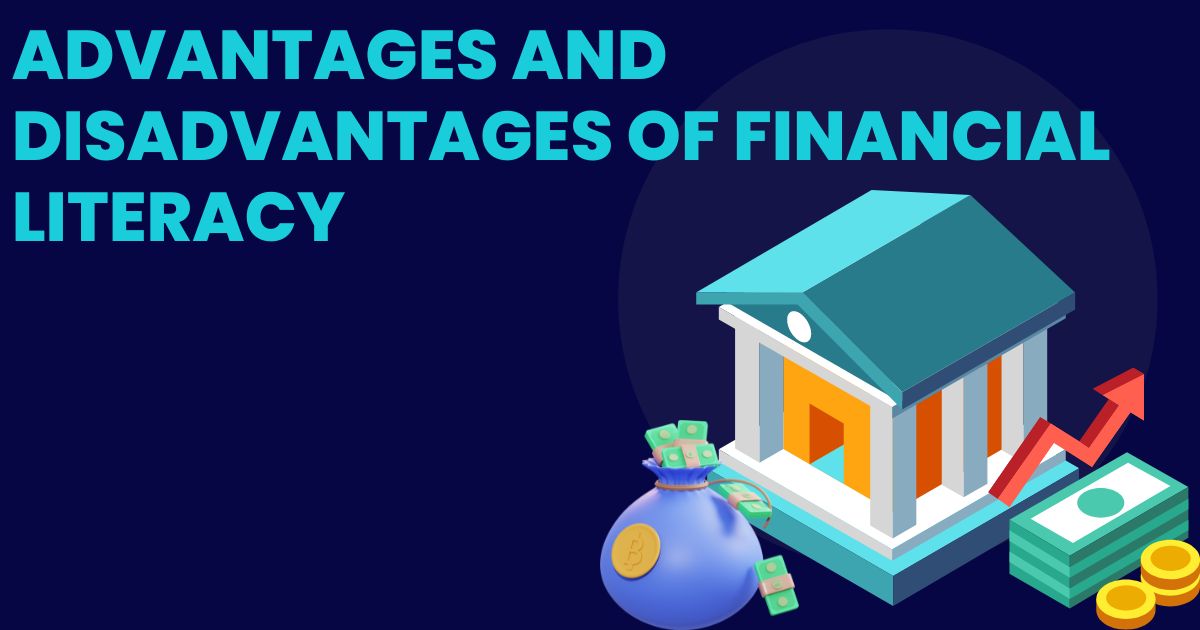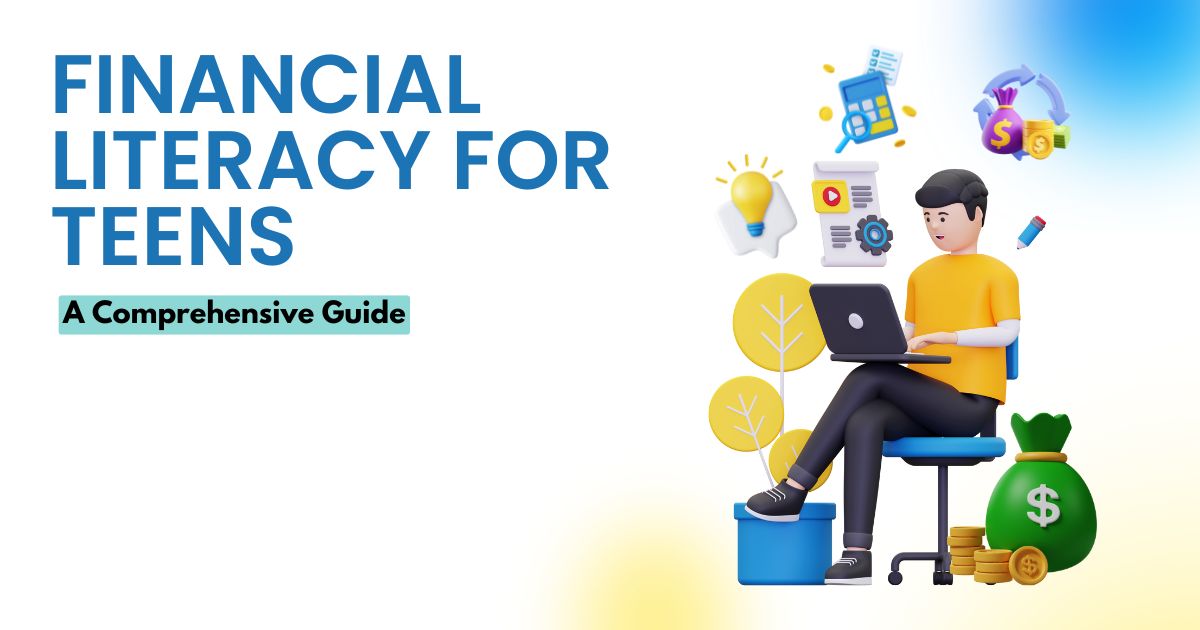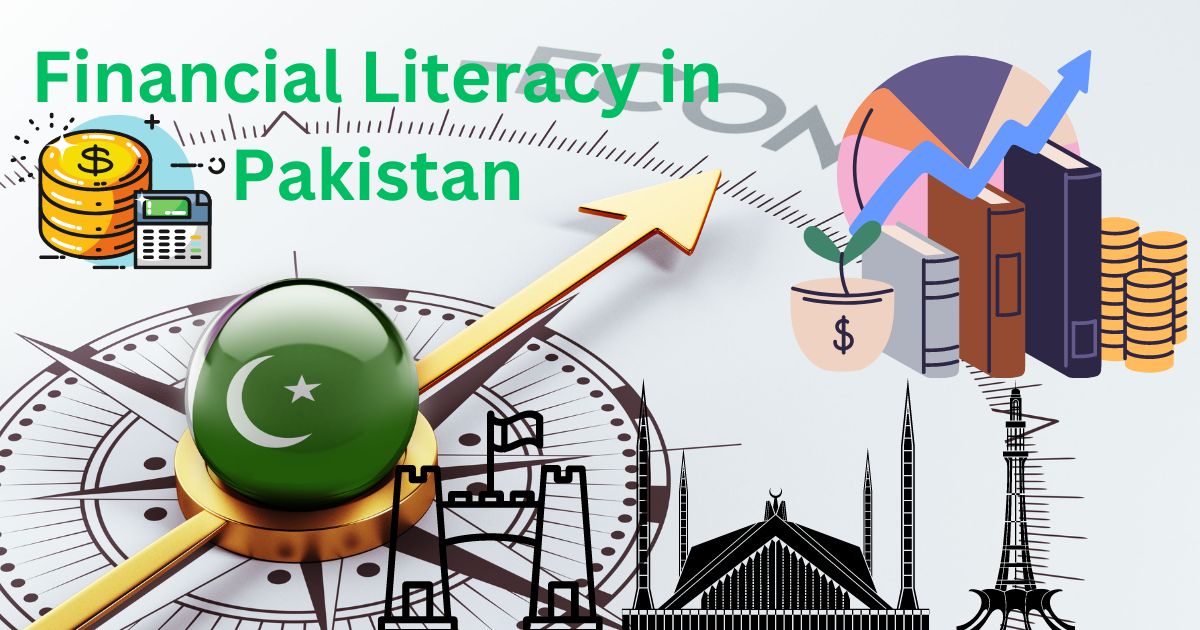Introduction:
Advantages and Disadvantages of Financial Literacy
Financial literacy is the ability to comprehend and effectively utilize unique monetary talents, inclusive of individual economic management, making plans, and cash control. In the prevailing complex economic scene, having financial talent is pressing for human beings to correctly explore their monetary selections. How approximately we dive into the blessings and burdens of monetary skillability.
Advantages of Financial Literacy
Financial Stability:
One of the essential advantages of monetary proficiency is achieving financial strength. People who are monetarily proficient are more ready to control their money productively, guaranteeing they have an adequate number of monetary investment funds to cowl crises and accomplish their extensive time span monetary objectives. Advantages and Disadvantages of Financial Literacy.
Better Decision-Making:
Financially literate people make informed choices about their budget. They recognize the consequences in their picks, whether it’s disposing of a loan, investing inside the inventory marketplace, or purchasing insurance, leading to greater favorable effects ultimately.
Improved Budgeting Skills:
Financial literacy enables individuals to make and adhere to a financial plan. By following their benefits and costs, they can find locales where they could lessen charges, save more noteworthy, and keep away from unnecessary obligation.
Lower Debt Levels:
Individuals with a strong hold close of economic concepts are less in all likelihood to accumulate excessive tiers of debt. They recognize the dangers related to borrowing cash and attempt to maintain healthful debt-to-profits ratios, reducing the probability of economic misery.
Disadvantages of Financial Literacy
Overconfidence:
While monetary literacy is useful, it can additionally cause overconfidence. Some individuals may additionally believe they have a higher know-how of financial subjects than they genuinely do, leading to volatile selection-making and financial losses.
Misinterpretation of Financial Information
Not all financial facts are simple, and misinterpreting complex monetary standards can cause terrible choice-making. Without a stable foundation in economic literacy, individuals may also war to recognize the phrases and situations of monetary merchandise, main to high-priced mistakes.
Complexity of Financial Products:
The fiscal assiduity gives a wide array of products and services, each with its own set of terms, charges, and troubles. Navigating this complexity calls for a certain position of financial knowledge, and people who warrant it can fall prey to rectorial lending practices or investment swindles.
Risk of Scams and Fraud
Individuals who are not financially literate are extra at risk of financial scams and fraud. Without the knowledge to spot purple flags or confirm the legitimacy of economic gives, they will unwittingly come to be victims of identity robbery, phishing schemes, or Ponzi schemes.
How to Become Financially Literate
Becoming financially literate is a pivotal step toward managing your money effectively and accomplishing financial freedom.
Here are a few steps to offer assistance to you on this journey:
1. Educate Yourself:
Read Books:
Begin with well-regarded individual finance books like “Rich Dad Poor Dad” by Robert Kiyosaki, “The Add up to Money Makeover” by Dave Ramsey, or “Your Money or Your Life” by Vicki Robin and Joe Dominguez.
Online Courses:
Stages like Coursera, Udemy, and Khan Institute offer courses on individual back and investing.
Blogs and Articles:
Follow reputable financial blogs and websites like Investopedia, The Adjust, and NerdWallet.
2. Understand Basic Financial Concepts
Budgeting: Learn how to make and stick to a budget.
Saving: Get it the importance of saving and different types of savings accounts.
Investing: Get familiar with stocks, bonds, shared funds, ETFs, and genuine estate.
Debt Management: Know how to manage and pay off debt, including credit cards, student loans, and mortgages.
Credit Scores: Get it what influences your credit score and how to improve it.
3. Utilize Financial Tools
Budgeting Apps: Tools like Mint, YNAB (You Need a Budget), or PocketGuard can offer assistance you track your spending and savings.
Investment Platforms: Start with user-friendly platforms like Robinhood, E·TRADE, or Improvement to begin investing.
Financial Calculators: Utilize online calculators to arrange for retirement, mortgage payments, or savings goals.
4. Stay Updated
News: Follow financial news through sources like The Wall Street Diary, CNBC, or Bloomberg.
Podcasts: Tune in to finance-focused podcasts such as “The Dave Ramsey Show,” “Planet Money,” or “Freakonomics Radio.”
Newsletters: Subscribe to newsletters from financial advisors or institutions for regular insights and tips.
5. Practice Financial Discipline
Set Objectives: Set up short-term and long-term budgetary goals.
Automate Savings: Set up programmed exchanges to your reserve funds and speculation accounts.
Live Below Your Means: Dodge way of life inflation and unnecessary expenses.
6. Seek Professional Advice
Financial Advisors: Consider counseling with a certified budgetary organizer (CFP) for personalized advice.
Workshops and Seminars: Attend local or online workshops and workshops on financial literacy.
7. Engage in Continuous Learning
Join Communities: Take part in online gatherings or local groups focused on individual finance.
Review and Adjust: Frequently survey your financial plans and adjust them as needed.
8. Apply What You Learn
Hands-on Experience: Begin by overseeing a little investment portfolio or creating a detailed budget. Learn from your encounters and mistakes.
Track Progress: Keep track of your financial milestones and review your advance regularly.
Advantages and Disadvantages of Financial Literacy:
| Advantages | Disadvantages |
|---|---|
| Empowerment | Overconfidence |
| Improved Money Management | Complexity |
| Wealth Accumulation | Misinformation |
| Financial Management | Economic Inequality |
| Retirement Planning | Behavioral Biases |
FAQs For Advantages and Disadvantages of Financial Literacy
1. What is financial literacy?
A: Financial literacy alludes to the possibility to comprehend and effectively utilize various monetary gifts, which incorporate individual monetary control, planning, and making a venture.
2. How does monetary literacy impact private finance?
A: Financial literacy performs a crucial function in non-public finance by way of supporting people make informed selections about savings, investments, debt management, and coverage.
3. What are some challenges in selling economic literacy?
A: Challenges in selling financial literacy consist of lack of get right of entry to education, complexity of economic standards, cultural barriers, and changing financial landscapes.
4. What function do governments play in promoting monetary literacy?
A: Governments regularly implement financial education programs, regulate financial institutions, enact client safety laws, and behavior public attention campaigns to sell monetary literacy.
5. What are some future trends in financial literacy?
A: Future developments in monetary literacy encompass the impact of automation and AI, customized financial schooling, upward thrust of virtual currencies, and tasks in inexperienced finance.
Conclusion
In conclusion, at the same time as financial literacy offers several benefits, it also comes with its proportion of challenges and dangers. By promoting monetary education and attention, individuals can maximize the benefits of financial literacy at the same time as minimizing its disadvantages. In an increasingly complicated monetary world, continuous gaining knowledge of and variation are vital for achieving long-time period financial safety and achievement.




